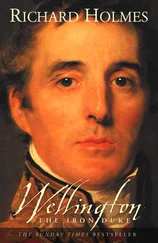Mr Savage now came under the Patronage of his generous kinsman Lord Tyrconnel, to whom his poem ‘The Wanderer’ is dedicated. But in consequence of some Misunderstanding, he shortly reverted to his previous condition of Poverty, and with the Cessation of the Queen’s allowance, he was thrown once more upon his Wits and his Friends, in the Town. He once again began to publish a number of poetical Works, in the new Gentleman’s Magazine of Mr Edward Cave at St John’s Gate, Clerkenwell, among which was his poem ‘Of Public Spirit’ (1737); but was menaced with a charge of Obscene Libel for his poem ‘The Progress of a Divine’.
The condition of his Poverty being unrelieved, he threw himself with increasing confidence on the Generosity of his many friends, among whom Mr Solomon Mendez of Hackney, and Mr James Thomson, the distinguished author of ‘The Seasons’, at Richmond; though it is to be feared that some Nights were passed in the Cellars and on the Bulks of Covent Garden, in the company of Beggars, Thieves, and other Denizens of Grub Street.
Mr Savage had for some time revolved a plan of Retirement to the country, where he hoped to re-write and refurbish his original Tragedy of ‘Sir Thomas Overbury’. Accordingly through the Generosity of Mr Alexander Pope, a Subscription of £50 per annum was organized among his friends, and in the summer of 1739 Mr Savage departed for Wales. Here he settled at Swansea and its Environs, where he is supposed to have met his Friend the poet Mr John Dyer, and paid court to the celebrated Beauty of Llanelli, Mrs Bridget Jones. But his Funds once again running low, Mr Savage returned to Bristol to write his Tragedy and informed his Friends of his imminent Return to the Capital, at which much of his Subscription was unaccountably discontinued.
In January 1743 Mr Savage was precipitately arrested for Debt, and conveyed to the Newgate Prison in Bristol, where he received the personal Attentions of the Gaoler Mr Dagge, and died suddenly in his Room on 1st August 1743, being buried at Mr Dagge’s expense in St Peter’s Churchyard, six feet from the south Door of the church.
Mr Richard Savage never married, and had no known Off-spring, though he is survived by his reputed mother Mrs Anne Brett, the former Lady Macclesfield, of Old Bond Street, London. His personal Papers have been obtained by his editor Mr Edward Cave, of the Gentleman’s Magazine.
The facts, and even the rumours, given here accurately represent the public knowledge of Richard Savage’s career at the time of his death, and are indeed historically correct as far as they go. But the obituary itself is a biographer’s fiction. Nothing like it can be found in the memorial columns of the contemporary journals of 1743. I have simply invented it.
This imaginary obituary suggests some of the mysteries and questions that always surrounded Savage’s life. But it is forced to omit the single most surprising fact, because at that time it had not become true. Among the ‘Denizens of Grub Street’ whom Savage encountered in the late 1730s was an unknown young literary novice called Samuel Johnson, who assured his own fame by writing Savage’s biography a year later in 1744.
A life like Savage’s is mysterious in itself, but also mysterious in the way it came to be told and reinterpreted, one version layered upon another, like a piece of complex geology. Its stratified truth was not ready to emerge immediately on his own death, or even in his own century. It depends on the series of its tellers or excavators, of whom our imaginary obituarist of 1743 is one; Samuel Johnson in 1744 is another; Johnson’s own biographers, Sir John Hawkins (1787) and James Boswell (1791), are a third and fourth; and so on down a line of scholars, Victorian antiquarians and modern academics to our own time. Through these rich and varied workings of research and story-telling the buried figure of Savage slowly rises back to life again.
The subject of this book is one particular version, the ‘original’ version, Johnson’s Savage. But it is also the question of versions itself. It is the biography of a biography. It concerns the kind of human truth, poised between fact and fiction, which a biographer can obtain as he tells the story of another’s life, and thereby makes it both his own (like a friendship) and the public’s (like a betrayal). It asks what we can know, and what we can believe, and finally what we can love.
If there was no official obituary of Savage in 1743, it is still possible to discover how his contemporaries felt about him very close to the time of his death, from public knowledge about his scandalous reputation and from popular hearsay. This must be the start, or first layer, of the investigation.
What emerges initially is a tale of controversy, sensationalism, disputed facts, and a good deal of eighteenth-century moralising about social justice and personal cruelty. Three documents vividly substantiate this: a poem, a letter, and an advertiser’s announcement. Each of these is an early example of the memorial process at work, by which a private life begins to take its place in a nation’s history.
Savage’s life was seen from the start as containing the elements of a crime thriller, which would appeal to a popular as much as a literary readership. Savage, as his very name seemed to suggest, was a poet-killer with a peculiar violence in his relationships. His story begins in an aristocratic divorce court, emerges in the world of publicity and the new monthly magazines, continues in a murder trial, touches upon fashion, politics and royalty, and ends suddenly and disgracefully in a debtors’ prison. More than any other English poet since Christopher Marlowe, Savage’s reputation was notorious and his true identity problematic, though for very different reasons to Marlowe’s. His ‘case’ was exemplary to his age, even if no one could quite agree what it exemplified, or who – ultimately – was to blame for its tragedy.
In the month of his death, the Gentleman’s Magazine , which had to some degree sponsored the final stages of his career and had a literary investment in his story, published a verse ‘Epitaph on the late R------d S------e Esq’. This emphasised the tragic aspects of the affair. It referred obliquely to his poetic powers, his wit, his illegitimacy, his trial, his laureateship, and his ‘cruel’ and vengeful mother.
The anonymous Epitaph writer begins by invoking Phoebus, the god of Poetry – which is like placing a classical bust at the entrance of the Vauxhall Pleasure Gardens. Savage’s raffish life is grandly presented as a contest between two powerful patrons: unworldly Poetry and Worldly Fortune, who are necessarily hostile to each other.
Whom Phoebus favour’d, on whom Fortune frown’d
Lies deep beneath this consecrated ground.
Savage the name: – he was design’d by Fate,
That err’d at his conception, to be great.
And such he was, in boundless wit and pride;
Tide and heir his Mother’s lust deny’d.
Within the tight, gavotte-like turns of mid-eighteenth-century occasional verse, the Epitaphist plays decorously on the idea of Savage’s ‘greatness’. Here was a great poet perhaps, but not a great social success. He was a man of great wit (in the sense of intelligence, rather than humour); but also great in his pride, arrogance and self-esteem – qualities which can blunt wit or make it blind. Then comes the scandalous, journalistic punch line: he should have been great in family title and financial inheritance too, but this was ‘deny’d’ him by his mother and – more outrageous yet – by his mother’s ‘lust’. This seems to be a libellous attack on the Countess of Macclesfield.
The Epitaphist now moves swiftly on to enlist sympathy for Savage. He suffered from poverty and dangerous misfortunes, yet he continued to write poetry. His mother cruelly withheld her support, but his Queen eventually saved him, and Heaven pitied him and forgave him, so that a greater justice eventually prevailed in his life.
Читать дальше












